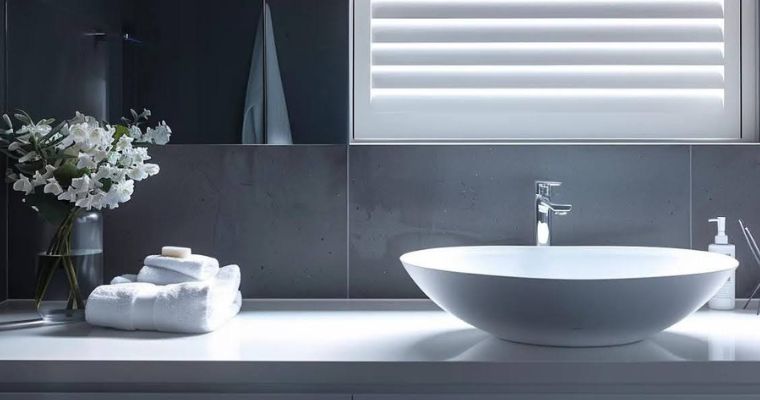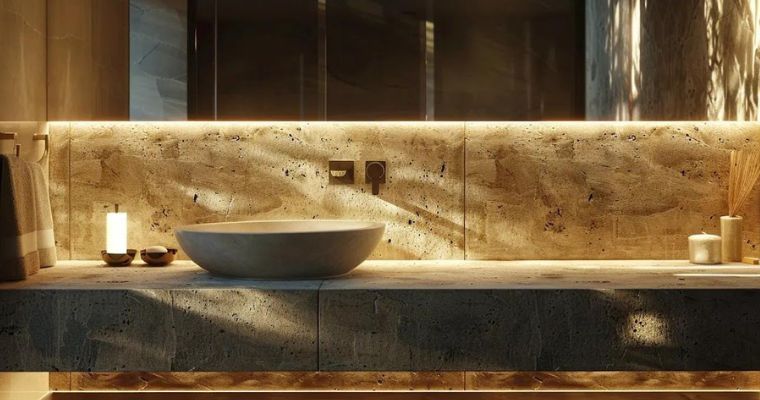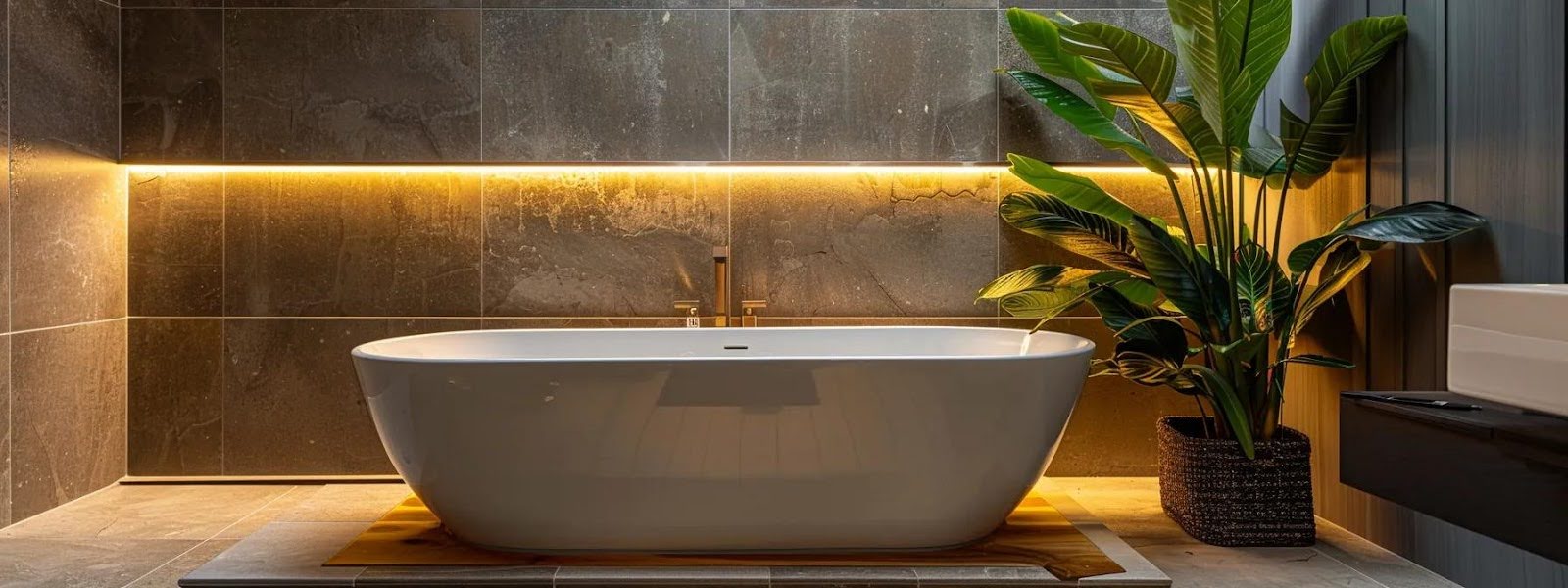Renovating a bathroom in Sydney can transform your home by adding value, style, and functionality. Homeowners must navigate fluctuating costs, design uncertainties, and complex construction timelines. This guide explains the factors influencing costs, design themes to suit diverse tastes, a clear renovation process, the best materials and fixtures available, and insights on duration and council approvals. The aim is to equip you with the essential knowledge to make informed decisions and connect with verified local service providers for quality workmanship and peace of mind.
How Much Do Bathroom Renovations Cost in Sydney?
Costs vary widely depending on the scale of the project, materials chosen, and whether structural changes are needed. Factors such as labour—especially for plumbers, electricians, and tilers—play a significant role. High-quality materials like custom vanities and designer tiles further increase the budget. Additional expenses often include permits, council fees, and waste removal. Detailed quotes breaking down costs for materials, labor, and fees help ensure a realistic budget.
What Factors Influence Bathroom Renovation Costs?
Cost drivers include: - Project scope and available space - Quality of materials and design objectives - Plumbing and electrical upgrade requirements - Complexity of re-routing pipes or circuits - Additional features like heated flooring or waterproofing - Location-based premium pricing, especially in Sydney’s eastern suburbs
Unforeseen issues such as mould or structural damage and changes requested during work can also push costs higher. Obtaining detailed quotes is essential to understand all expenses.
How to Budget for a Bathroom Renovation in Sydney?
Begin by identifying every element of the project and obtaining detailed quotes from reputable contractors. Set aside an extra 10–20% of your budget for unexpected issues. Break the project into phases—design, demolition, materials, and finishing—to clarify the spending distribution. Researching material costs and engaging experienced tradespeople or companies can help further refine a realistic budget. Future-proofing your bathroom with eco-friendly fixtures and smart technology may add initial cost but can raise property value over time.
What Are the Differences Between Budget and Luxury Renovations?
Budget renovations focus on functionality using standard fixtures, ready-made vanities, and simpler tiling options. In contrast, luxury renovations include bespoke designs with premium materials like natural stone, custom cabinetry, and high-end fittings. Luxury projects often employ advanced waterproofing, digital controls, and radiant heating that significantly increase cost but deliver superior finishes and durability. Homeowners need to balance their design priorities with return on investment when choosing between budget and luxury options.
Where to Get Accurate Bathroom Renovation Quotes in Sydney?
For accurate quotes, contact a reputable bathroom renovation expert in Sydney and verified tradespeople in Sydney. ServiceTasker is one option connecting you with local professionals known for transparent pricing. On-site assessments ensure that all factors—from plumbing and electrical work to material costs—are included in the quote. Requesting multiple quotes and reviewing previous projects helps guarantee that you receive competitive and realistic pricing.
What Are the Popular Bathroom Design Styles in Sydney?
Sydney homeowners enjoy diverse bathroom styles, including modern, traditional, contemporary, and coastal designs. Each style not only enhances visual appeal but also influences overall functionality and space flow. A well-chosen style can ensure your bathroom meets your taste while effectively utilising the available space.

What Defines Modern Bathroom Design?
Modern design is all about minimalism, clean lines, and functionality. Characteristics include: - Neutral colour palettes and sleek surfaces - Integrated storage and high-tech lighting - Floating vanities and frameless glass showers - Use of LED mirrors, digital controls, and smart shower systems
Such designs maximise small spaces and create a clutter-free, sophisticated atmosphere. The use of sustainable materials and eco-friendly fixtures is also popular, aligning with broader environmental goals.
How to Achieve Traditional Bathroom Design?
Traditional designs evoke timeless elegance through: - Rich, warm colour schemes and ornate fixtures - Pedestal sinks, clawfoot tubs, and detailed cabinetry - Period-appropriate lighting and decorative mouldings
This style provides a nostalgic yet refined look, creating a comfortable and functional space that blends vintage charm with modern practicality.
What Are Contemporary and Coastal Bathroom Styles?
Contemporary designs combine modern simplicity with comfort. They use neutral tones, smooth surfaces, and ergonomic fixtures, offering a balanced yet stylish look. Coastal designs, inspired by seaside living, are characterised by: - Light, airy colours like soft blues and sandy beiges - Natural textures and weathered wood accents - Marine-inspired décor that creates a relaxed and tranquil feel
Both styles offer versatility and appeal to homeowners seeking a modern yet relaxed atmosphere.
How to Choose the Right Bathroom Style for Your Home?
Selecting the appropriate style depends on your taste, existing home décor, and lifestyle needs. Consider the overall ambience of your home; modern styles suit minimalist spaces, while traditional designs work well in heritage settings. Consulting with bathroom designers can help tailor designs to specific spatial layouts and usage patterns, ensuring that the final style adds both value and efficiency to your home.
What Is the Step-by-Step Bathroom Renovation Process in Sydney?
A successful renovation follows a clear, sequential process. Collaborate closely with designers, contractors, and tradespeople to keep your project on schedule and within budget.
How Does Demolition and Preparation Work?
The renovation begins with demolition, where outdated fixtures, tiles, and sometimes structural elements are removed. Key aspects include: - Careful planning for safety and minimal collateral damage - Assessing the current layout for issues like water damage - Planning the new layout and feature placement
Strict adherence to local safety standards and environmental guidelines ensures a smooth groundwork for the rest of the project.
What Plumbing and Electrical Work Is Involved?
During the renovation, updates are often required for plumbing and electrical systems: - Re-routing or updating plumbing lines for new fixtures like rain showers or freestanding bathtubs - Reconfiguring electrical systems to support modern, energy-efficient lighting, heated floors, and extra outlets
Ensuring compliance with Australian building standards is essential. Skilled tradespeople install and test new systems to avoid future leaks or electrical issues.
How Are Tiling and Waterproofing Completed?
Tiling and waterproofing protect your bathroom from moisture-related damage. The process involves: - Applying specialised membranes and sealants to areas prone to water exposure to prevent mould and deterioration - Laying floor and wall tiles with precision to enhance both aesthetics and safety by reducing slip risks
Attention to detail during these steps is vital, especially in Sydney’s humid environment. High-quality adhesives and grouts ensure durability and align with modern design trends.
What Happens During Fixture Installation and Finishing?
In the final phase, fixtures are installed and finishing touches are applied: - Installation of vanity units, mirrors, lights, taps, and toilets - Attention to hardware choice and colour coordination for a cohesive look - Priming, painting, and adding accessories to personalise the space
This stage transforms the vision into a functional and beautiful bathroom, with expert tradespeople ensuring every detail is executed correctly.
Which Bathroom Materials and Fixtures Are Best for Sydney Renovations?
Choosing durable and stylish materials is crucial. Advances in material technology have expanded the options available to homeowners, allowing a balance between innovation and durability.

What Are the Best Tiles for Bathroom Renovations?
Ideal tiles offer both durability and style. Popular options include: - Porcelain and ceramic tiles due to their resilience and ease of cleaning - Large-format tiles that create a spacious look with fewer grout lines - Textured, slip-resistant tiles for safety in wet areas
Selecting tiles that meet high-performance standards for water resistance and longevity is key.
How to Choose Bathroom Vanities and Countertops?
When selecting vanities and countertops, consider: - Materials like engineered stone, quartz, and high-quality timber - Designs that offer ample storage and fit well in your space - A balance between modern minimalist styles and classic designs
Collaboration with experienced bathroom designers ensures that chosen pieces integrate seamlessly with the overall design and are practical for everyday use.
What Shower Fixtures and Fittings Are Popular?
Popular choices for showers include: - Rain showers and multi-function shower panels for a luxurious experience - Thermostatic mixers for precise control of water temperature and pressure - Digital control systems that add convenience and promote water conservation
These fixtures combine aesthetic appeal with technical performance, making them perfect for a spa-like experience.
How to Select Sustainable and Eco-Friendly Materials?
Eco-friendly options are increasingly popular in Sydney. Consider: - Recycled glass tiles and low-VOC paints - Sustainably sourced timber for vanities and cabinets - Water-saving fixtures such as dual-flush toilets and low-flow taps
Using sustainable materials not only reduces environmental impact but also enhances the long-term value and efficiency of your renovation.
How Long Does a Bathroom Renovation Take in Sydney?
Project durations vary. A full-scale renovation commonly takes six to twelve weeks from initial consultation to final installation, depending on complexity and contractor availability.
What Is the Typical Renovation Timeline?
A standard timeline includes: - 1–2 weeks for planning, design approvals, and obtaining permits - 1–2 weeks for demolition and preparation - 4–6 weeks for installing plumbing, electrical systems, tiling, and fixtures
Effective project management helps complete finishing touches like painting and fixture installation without delays.
Which Factors Affect Bathroom Renovation Duration?
Key factors include: - The project’s overall scale and design complexity - Repetitiveness of installations and any unforeseen issues - Weather conditions and potential supply chain disruptions - Coordination efficiency among skilled tradespeople and subcontractors
Ordering materials in advance and planning for contingencies are crucial to maintaining steady progress.
How Does Project Management Ensure Timely Completion?
Professional project management coordinates every phase: - Detailed scheduling and regular progress meetings - Continuous communication with all team members to resolve issues quickly - Proactive problem-solving to prevent delays
Hiring a professional manager or a company known for punctuality provides confidence and usually keeps the project on track.
What Are Common Delays and How to Avoid Them?
Common delays include: - Material shortages and unforeseen issues during demolition - Processing delays for permits - Coordination challenges among multiple trades
Thorough pre-renovation inspections, clear contracts outlining timelines, and partnering with reputable suppliers help mitigate these issues.
Do You Need Council Approval for Bathroom Renovations in Sydney?
Council approval depends on the scope of work and local regulations. Typically, changes affecting the building’s structure or external appearance require permits, while simple cosmetic updates may not.

When Is Council Approval Required?
Approval is generally needed for: - Structural modifications and alterations to plumbing systems that impact building integrity - Changes affecting fire safety or external aesthetics - Renovations in historical properties
Always consult local council guidelines to determine if your planned changes exceed the threshold limits.
What Documentation Is Needed for Approval?
Typically required documents include: - Detailed project plans and architectural drawings - Engineering reports and structural assessments - Comprehensive cost estimates and evidence that materials meet safety standards
Contractors often assist in assembling this documentation to reduce approval delays.
How Can Sydney Bathroom Renovation Experts Help With Approvals?
Experts can manage permit applications and regulatory compliance by: - Working directly with local councils to streamline the process - Ensuring all documentation is accurate and complete - Using their experience with council procedures to advise on best practices and prevent delays
Their guidance ensures both design and legal requirements are met efficiently.
Why Choose Sydney Bathroom Transformations for Your Renovation?
Choosing a professional service can greatly influence the end result. Sydney Bathroom Transformations delivers high-quality, personalised renovation projects that emphasise design, functionality, and durability. Their expertise ensures every phase—from initial consultation to final installation—is managed efficiently.
What Custom Design Services Do We Offer?
They offer tailored design services that include: - Collaborative planning to develop bespoke designs for optimal space utilisation - 3D visualisations and material recommendations that align with current design trends - Design consultations to ensure every detail, fixture placement, and colour scheme match the homeowner's vision.
How Do We Ensure Quality Craftsmanship?
Quality is ensured by: - Using experienced, licensed tradespeople and premium materials - Overseeing every phase from installation to the final finish with strict quality control - Ensuring that every renovation not only looks exceptional but also performs reliably over time.
What Project Management Support Is Provided?
Their project management includes: - Detailed planning, scheduling, and on-site supervision to keep the project on track - Regular progress meetings and milestone tracking - Proactive communication to minimise disruptions and ensure smooth transitions between phases.
What Warranty and Aftercare Services Are Available?
They offer strong warranties on both materials and workmanship, along with aftercare services: - Promptly addressing any issues arising after completion - Providing ongoing maintenance advice and support to extend your bathroom's lifespan - Enhancing your investment’s long-term value and ensuring continued functionality
Final Thoughts
Bathroom renovations in Sydney require careful planning and execution. Understanding costs, design styles, the renovation process, and material selection can significantly enhance both functionality and property value. With professional support, detailed budgeting, and expert guidance from trusted companies, even complex projects can be managed successfully. Every aspect—from council approval to aftercare services—is streamlined to deliver a stunning and durable bathroom transformation.















